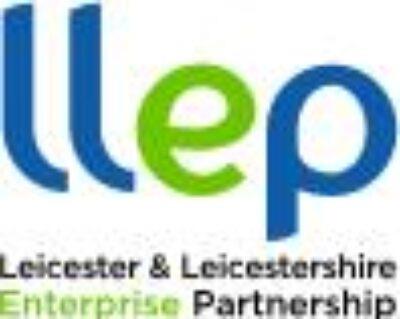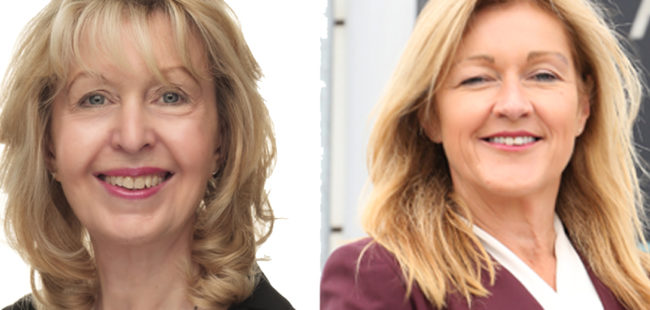Supply chain concerns? If you only do one thing, do this
As businesses enter one of the most turbulent periods in UK history, Morningside Pharmaceuticals Chairman and LLEP Board Director Dr Nik Kotecha OBE looks at how an international accreditation may help companies navigate their supply chains through the coming storms.
As the old adage goes, ‘trouble comes in threes;’ this is certainly the case for UK businesses this winter.
Not only has there been some disruption at the end of the Transition Period, UK PLC also has the ongoing challenges of a second, more serious wave of Covid-19 to contend with, as well as the renewed threat of a double dip recession.
These three troubles will be most acutely felt by UK businesses that rely on sophisticated supply chains to import and export their goods with the EU and the rest of the world.
There is a wide range of advice from the UK Government for preparing for the end of the Transition Period. Businesses should go through this in detail and act upon it immediately, because the way we trade with the EU has changed and things will not be how they were.
At Morningside Pharmaceuticals, we manufacture and supply a wide range of quality generic medicines for the UK and international export markets. Exporting goods is critical to our business and as such, we have been preparing for some time to ensure an absolute minimum disruption to our safe and secure temperature-controlled supply chains.
Of all the actions we have taken, there is one which stands out from the crowd. It may have a profound impact on business’ importing and exporting capabilities, as the UK seeks to establish new trade routes with the rest of the world.
This was applying to become an Authorised Economic Operator (AEO), which is an international standard accreditation given by HMRC. This status shows that our supply chain processes are safe and secure. It also allows us to benefit from arrangements under Mutual Recognition Agreements (MRA), which are agreed with third country customs authorities.
This accreditation is recognised by not just the EU but countries all over the world, which will be enormously beneficial for businesses looking to tap into new global markets.
To achieve AEO status a business must submit an application to HMRC, which is then followed by an audit and inspection of their premises and supply chain processes. To help prepare for the audit we carried out a gap analysis to further improve our processes, which were fully reviewed in line with the criteria. Further details can be found on the gov.uk website.
AEO Status Explained
There are two types of AEO status: AEO (C), which helps with customs simplification, and AEO (S), which verifies that a business’ supply chains meet the highest security and safety standards. I am very proud that Morningside has successfully secured both, which becomes AEO (F), or ‘full.’
The AEO (C) accreditation benefits the holder in a number of ways including: receiving priority treatment for customs controls; a faster application process for customs simplifications and authorisations; a reduction in a business’s deferment account guarantees; and a reduction or a waiver of comprehensive guarantees.
Holders can also move goods into temporary storage between different member states and will receive a lower risk score, which may reduce the number of checks customs carry out on documents and goods.
The AEO (S) accreditation allows the holder to receive propriety treatment for customs controls; reduced declarations requirements for entry and exit summary declarations from countries outside of the UK and EU; and a lower risk score which may reduce the number of checks customs carry out on their documents and goods. Holders will also benefit from reciprocal arrangements and mutual recognition with countries outside the EU.
Who Can Apply
Most UK businesses will be eligible to apply for the AEO accreditation, as long as they are a legal entity, established in the UK or an EU member state, are actively involved in customs operations and international trade; and have a European Operator Registration and Identification (EORI) number.
Businesses can also apply if they are new to customs and can clearly show the processes and procedures they have in place to meet the criteria. Anyone involved in the international supply chain that carries out customs related activities in the UK or EU can apply for AEO status, regardless of the size of their business.
Global Recognition
Once a UK business has achieved the accreditation, it is recognised throughout the whole of the EU.
If a business has AEO (S) status they can benefit from arrangements under Mutual Recognition Agreements (MRA), which the EU negotiates with third country customs authorities. Currently this applies to China, Japan, the USA, Andorra, Norway and Switzerland.
Businesses looking to trade with these new markets will enjoy faster clearance at the borders, fewer interventions and lower risk scores.
I would recommend businesses to consider these international standards. By going through this assessment process and looking at all of the checks and balances in our robust supply chain, it has made our business far stronger. The process identified areas of improvement to enhance the efficiency and effectiveness of our security and supply chain processes, which have been implemented.
This will certainly help if this winter’s troubles really do come in threes.


